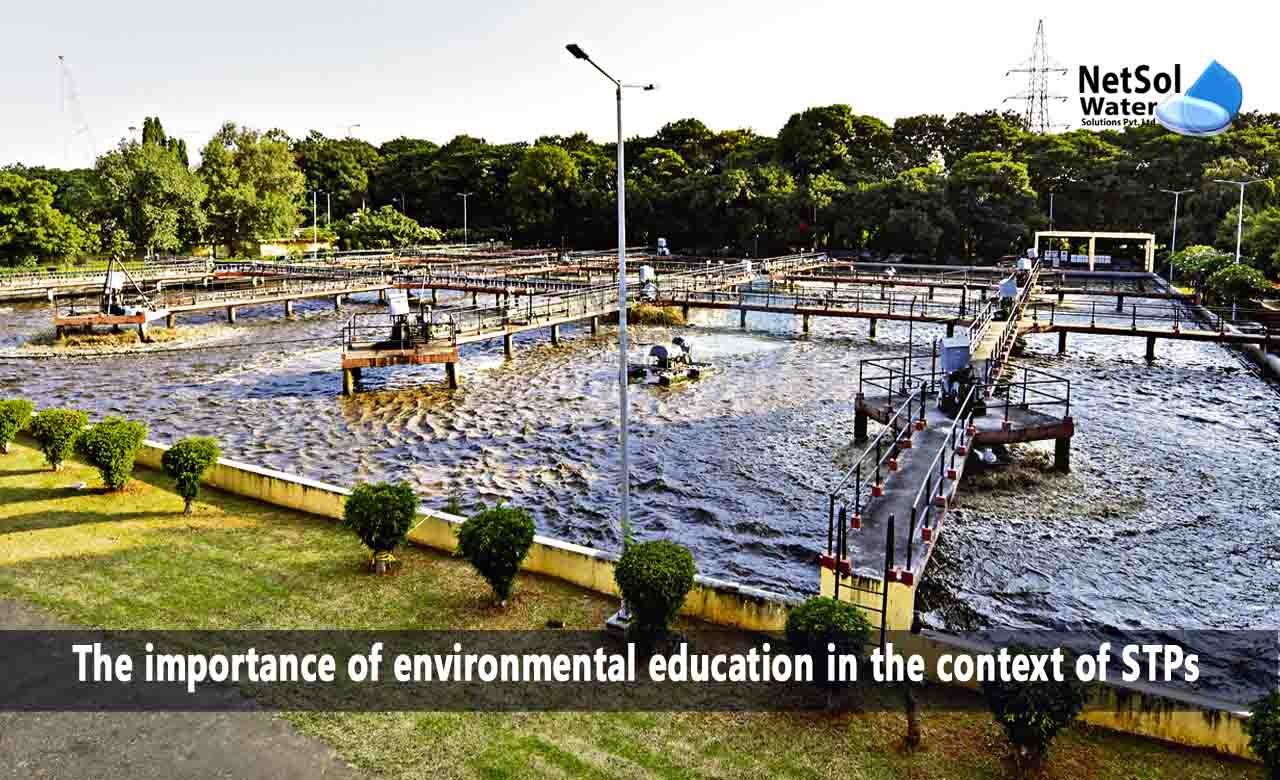What is the importance of environmental education in the context of STP?
Sewage treatment plants (STPs) play a vital role in ensuring the effective treatment of wastewater and protecting the environment. However, the success of STPs in achieving their objectives depends not only on advanced treatment technologies but also on the active participation and responsible behavior of the community. Environmental education plays a crucial role in promoting awareness and behavior change among individuals, encouraging them to adopt sustainable practices and support the proper functioning of STPs.
In this blog, we will explore the importance of environmental education in the context of STPs, its benefits, and strategies for effectively promoting awareness and behavior change.
The Role of Environmental Education:
Environmental education aims to raise awareness and understanding of environmental issues, promote sustainable practices, and encourage individuals to take responsibility for protecting the environment. In the context of STPs, environmental education plays a pivotal role in achieving the following:
1. Creating Awareness: Many people are unaware of the impact of wastewater on the environment and the importance of proper wastewater treatment. Environmental education helps to bridge this knowledge gap by providing information about the wastewater treatment process, the consequences of untreated wastewater, and the benefits of STPs in preserving water resources and safeguarding public health. Creating awareness about the importance of wastewater treatment fosters a sense of responsibility among individuals.
2. Changing Attitudes and Behavior: Environmental education can influence attitudes and behavior by highlighting the link between individual actions and their impact on the environment. By raising awareness of the potential pollution caused by improper disposal of wastewater, individuals can be encouraged to adopt responsible practices, such as reducing water usage, properly disposing of household chemicals, and supporting the proper functioning of STPs. Education empowers individuals to make informed choices and take actions that contribute to environmental sustainability.
3. Fostering Community Engagement: STPs are most effective when they receive support from the local community. Environmental education facilitates community engagement by involving residents, schools, community organizations, and businesses in the process of wastewater management. Engaging the community in STP initiatives through education programs, workshops, and public consultations fosters a sense of ownership and shared responsibility. It enables individuals to actively contribute to decision-making processes and promotes sustainable practices at the community level.
Strategies for Effective Environmental Education:
To maximize the impact of environmental education in promoting awareness and behavior change related to STPs, the following strategies can be implemented:
1. Curriculum Integration: Integrating environmental education into school curricula ensures that students receive consistent and structured learning about wastewater management and the importance of STPs. It helps create a generation of environmentally conscious individuals who understand their role in protecting the environment and supporting sustainable wastewater practices.
2. Community Outreach: Engaging the local community through outreach programs and workshops enhances awareness and encourages active participation in STP initiatives. These programs can include guided tours of STPs, educational seminars, and hands-on activities to help individuals understand the importance of proper wastewater treatment and inspire them to adopt sustainable practices in their daily lives.
3. Collaboration with Stakeholders: Collaborating with local stakeholders such as community organizations, non-governmental organizations (NGOs), and local businesses can amplify the impact of environmental education efforts. These partnerships can involve joint awareness campaigns, volunteer programs, or funding initiatives to support educational activities. By involving a diverse range of stakeholders, environmental education initiatives gain credibility, resources, and wider outreach.
4. Multimedia and Digital Platforms: Leveraging multimedia and digital platforms can enhance the reach and effectiveness of environmental education programs. Creating engaging and informative videos, interactive websites, and mobile applications allows for broader dissemination of educational content. These platforms can provide access to resources, educational materials, and real-time information about the functioning and importance of STPs.
5. Incentives and Recognition: Incorporating incentives and recognition programs can encourage individuals and communities to actively participate in environmentally friendly behaviors and support STP initiatives. Recognizing and rewarding individuals or groups that demonstrate exemplary environmental practices or contribute to the functioning of STPs creates a positive feedback loop that further promotes behavior change and community engagement.
Conclusion:
Environmental education plays a pivotal role in promoting awareness, behavior change, and community engagement in the context of sewage treatment plants. By creating awareness about the importance of proper wastewater treatment, influencing attitudes and behaviors, and fostering community involvement, environmental education contributes to the effective functioning of STPs and the protection of the environment. Through strategic implementation of curriculum integration, community outreach, collaboration with stakeholders, multimedia platforms, and incentives, environmental education initiatives can maximize their impact and inspire individuals to adopt sustainable practices, ultimately ensuring the long-term success of STPs and environmental sustainability for future generations.
Netsol Water is Greater Noida-based leading water & wastewater treatment plant manufacturer. We are industry's most demanding company based on client review and work quality. We are known as best commercial RO plant manufacturers, industrial RO plant manufacturer, sewage treatment plant manufacturer, Water Softener Plant Manufacturers and effluent treatment plant manufacturers. Apart from this 24x7 customer support is our USP. Call on +91-9650608473, or write us at enquiry@netsolwater.com for any support, inquiry or product-purchase related query.



